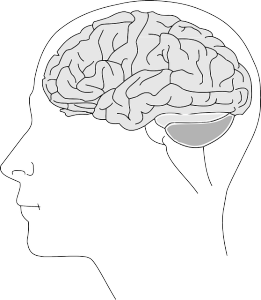
Contributor: Staff at Timberline Knolls Residential Treatment Center
Being a teenager is not easy. Some would even argue that it can be the most tumultuous years of a person’s life.
In junior high and high school, most kids are trying to figure out who they are. They’re at a place where they’re starting to form more solid opinions, determine their own beliefs, find things they’re interested in, and figure out what they want to do with their futures. At the same time, they may find themselves molding their identities to match the expectations of their peers.
The American Academy of Child and Adolescent Psychiatry notes that the relationships teenagers have with their peers play a significant role in their emotional and social development [1]. These relationships can be positive and negative, and teenagers often need help navigating the effects of those influences.
Positive Peer Pressure's Influence on a Teenager
The term “peer pressure” is often viewed as having a negative connotation. And while it can certainly be negative, there are many positives that can result from pressure from peers in healthy relationships. For example, a teenager might encourage their friend to stay home and watch a movie instead of going to a party where there will be alcohol. In this way, a friend is promoting a positive choice.
Call Timberline Knolls for Help 855-630-2865
Additionally, friends can have a positive influence on one another unintentionally. If a teenager is passionate about school, that can influence their friends to take their schoolwork seriously. When a teen stands up against gossiping or bullying, they may influence their friends to do the same.
Friends can also offer support and encouragement in a way kids value more than they would when receiving it from their parents or other adults. Kids tend to care more about what their peers think than what adults think, so supportive and kind teenagers have the ability to influence their friends to behave the same way [2].
Negative Peer Pressure's Influence on a Teenager
Unfortunately, negative peer pressure is inevitable. The way they are viewed by their peers is extremely important to teenagers, and most don’t want to be the one who goes against what the others are doing.
So, if a teen’s peers are drinking alcohol and offer it to them, it might be hard for them to say no, especially if they get made fun of for refusing. This also applies to things like skipping school, experimenting with drugs, and engaging in sexual activity.
 Teenagers’ brains are not yet fully developed. More specifically, the frontal cortex is still in the process of maturing during these teenage years, and this is the part of the brain that is responsible for controlling reasoning and helping individuals refrain from acting impulsively [3]. This means that teenagers may have difficulty thinking before they act and are therefore more likely to put themselves in dangerous or risky situations.
Teenagers’ brains are not yet fully developed. More specifically, the frontal cortex is still in the process of maturing during these teenage years, and this is the part of the brain that is responsible for controlling reasoning and helping individuals refrain from acting impulsively [3]. This means that teenagers may have difficulty thinking before they act and are therefore more likely to put themselves in dangerous or risky situations.
So, when a teen is with a group of peers who are making the decision to drink or experiment with drugs, they might not pause to think about what the effects of that behavior could be and instead decide to join their friends.
When Experimentation Becomes a Problem
It is not rare for groups of teenagers to get together and drink or do drugs. They’re curious, they want to be like their friends, and they might think that it is the cool thing to do. For many, this experimentation, while dangerous, might not have any lasting negative effects. But for others, what started as simple experimentation could ultimately turn into an addiction.
There are a number of signs that could indicate that a teen may have developed an addiction. Teens can be naturally secretive, but if you notice that a young person in your life has become more secretive or appears jumpy, that would be something to take note of.
Additional signs could include an unexplained drop in grades, a sudden change in friends, increased hostility or irritability, changes in sleeping or eating patterns, and noticeable changes in appearance. Addiction can also cause many people to lie and steal, and changes in behavior can seem extreme.
If you notice these types of things happening with a teenager in your life, it is imperative that you don’t ignore it or assume that it is just a phase. Even if it turns out that they are not using drugs or alcohol, there could still be something negative happening.
They could be getting bullied or suffering from symptoms of a mental health disorder like anxiety or depression. It could be any number of things, but regardless of what it is, it needs to be addressed.
Getting Help
Having a conversation with a teenager who you believe may be struggling with an addiction to drugs or alcohol can be intimidating. A lot of teenagers may not be eager to engage in conversations with adults in normal circumstances, and if they have something to hide, they are likely going to be more difficult to talk to.
 The most important thing is to remain in control and avoid letting them manipulate the situation. Offer support and encouragement, not judgment and anger.
The most important thing is to remain in control and avoid letting them manipulate the situation. Offer support and encouragement, not judgment and anger.
There are countless treatment centers that provide care for children, adolescents, and teenagers who are addicted to drugs or alcohol. Treatment is offered at many levels, including inpatient, residential, and outpatient programs like partial hospitalization programs and intensive outpatient programs. T
here are also detox services available should a young person need to detox before beginning treatment. The staff members at these treatment centers should give the child a thorough assessment before providing any recommendations for treatment. In doing so, they will be able to help determine which level of care will be of most benefit to them.
General practitioners are typically able to provide referrals to appropriate treatment centers in your area. That can be a great place to start. Talking to a doctor can also help you get a sense of the state of the child’s health.
There are also many online support groups for parents, guardians, and other caregivers who have children who are battling addictions.
Once a teenager begins treatment, it is extremely important that you play an active role in the treatment process. The things they learn in treatment need to be encouraged at home to ensure consistency and prevent relapse. Getting therapy for yourself can also be immensely beneficial as you learn to navigate what life after treatment will look like.
References
[1] American Academy of Child and Adolescent Psychiatry. (2018, March). Peer pressure. https://www.aacap.org/AACAP/Families_and_Youth/Facts_for_Families/FFF-Guide/Peer-Pressure-104.aspx
[2] ReachOut. (n.d.). Encourage positive peer pressure. https://parents.au.reachout.com/common-concerns/everyday-issues/things-to-try-peer-pressure/encourage-positive-peer-pressure
[3] American Academy of Child and Adolescent Psychiatry. (2016, September). Teen brain: behavior, problem solving, and decision making. https://www.aacap.org/AACAP/Families_and_Youth/Facts_for_Families/FFF-Guide/The-Teen-Brain-Behavior-Problem-Solving-and-Decision-Making-095.aspx
About Our Contributor:
 At Timberline Knolls Residential Treatment Center, located outside of Chicago, Illinois, we provide specialized care for women and girls who are living with mental health conditions such as substance use disorders and eating disorders. Our private facility offers female-only treatment programs for eating disorders, addiction, and a range of mental health conditions. We work closely with each person to develop treatment goals to maximize strengths while focusing on individual needs. Our treatment team understands that each woman has unique needs and that she must play a role in her journey to wellness.
At Timberline Knolls Residential Treatment Center, located outside of Chicago, Illinois, we provide specialized care for women and girls who are living with mental health conditions such as substance use disorders and eating disorders. Our private facility offers female-only treatment programs for eating disorders, addiction, and a range of mental health conditions. We work closely with each person to develop treatment goals to maximize strengths while focusing on individual needs. Our treatment team understands that each woman has unique needs and that she must play a role in her journey to wellness.
The opinions and views of our guest contributors are shared to provide a broad perspective of addictions. These are not necessarily the views of Addiction Hope, but an effort to offer a discussion of various issues by different concerned individuals.
We at Addiction Hope understand that addictions result from multiple physical, emotional, environmental, and genetic factors. If you or a loved one are suffering from an addiction, please know that there is hope for you, and seek immediate professional help.
Published on March 11, 2022
Reviewed by Jacquelyn Ekern, MS, LPC on March 11, 2022
Published on AddictionHope.com
